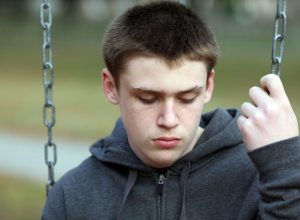Q. There were recently two child suicides in neighboring towns to us in less than two weeks, one of them a 13 year old. How does this happen? How can I protect my tween from a similar fate? I am at a loss. What is happening in the world??
A. Too many children all over the country seem to be feeling so forsaken that ending their lives is the only answer. How does anyone, much less a child, come to this conclusion? I cannot presume to have the answer. What we are left with is the question: How do we protect our children from such devastating despair?
According to U.S. News, over the last two years, there has been a steep increase in teen suicide attempts. From February 2020 to March 2021 “emergency rooms visits for suspected suicide attempts were over 50% higher among girls aged 12–17 than during the same period in 2019, according to the study” they referenced.
Some of the mental health issues teens are experiencing have to do with increased drug use and the effects of social media. But the question must address more fundamental layers. Many young people can resist drug use or moderate it. All are subject to social media. Some have addictive tendencies that are  more vulnerable to drug use and some are victims of cyber bullying. This is not the result of poor parenting.
more vulnerable to drug use and some are victims of cyber bullying. This is not the result of poor parenting.
Layer on the pandemic, and there are further elements at play. Since COVID-19’s arrival, there is even more reason to be concerned. Laura Kester, an adolescent medicine physician at UC Davis Health explains, “The challenges that children and teens normally face have been amplified by isolation and distancing during the pandemic.” In the full article, UC Davis shares signs of depression, what to do if someone you know is depressed, treatment options and additional resources for families trying to support struggling teens.
Stress and instability over the last two years have taken a toll, not only on children but adults as well. Children who suffer from poverty, racial injustice and mental disabilities are disproportionately affected. NPR’s “Short Wave” shared in January 2022 that pediatricians have seen a dramatic rise in children struggling with mental health issues. The 9-minute interview captures deeper insights and offers resources.
While the pandemic has had adverse effects on mental health for nearly all, its impacts on children who are particularly sensitive may be more demonstrative. According to Dr. W. Thomas Boyce, a pediatrician, research scientist and author of “The Orchid and The Dandelion: Why Some Children Struggle and How All Can Thrive,” many children have extreme sensitivities to their environment.
Boyce notes that Orchids account for 1 in 5 children. I use the name Integrity children to incorporate a little broader range of kids demonstrating these behaviors. In my experience, the Integrity child is born with an internal core of a sense of rightness and justice that drives his every mood and behavior. These kids try our very souls. And while we think they will never learn and we fear for their futures, what they are doing is demanding our personal responsibility and integrity. (This can be hard to see from the trenches of daily battles.)
At the same time, these children are so susceptible to their social settings—whether pernicious and threatening or nurturant and sustaining—that their outcomes are bound to their external environment.
They have an inherent stress reactivity to their situations so much so that when the environment does not suit them, as with the orchid flower, they wither. But when the environment matches their specific needs, they blossom with magnificence. Dandelion children, which I refer to as Harmony kids, as you can imagine, are children who do well anywhere.
Due to the reactivity of Integrity children, they are more susceptible to despair. So what can parents do? Can we better learn the signs? What if we see “a sign”—spending more isolated time in their room, for instance? Is that a symptom of depression or a teen’s desire for separation? Going into protective mode can risk connection with a teen fighting over-protection. How much do we do? How much do we not do?
The closest I can come to finding an answer to how to protect our children from despair is to understand that we parents are not responsible for our children’s happiness. Seem paradoxical?
When my daughter (an Integrity child) was very young, she had a lot of fear and struggled mightily with many aspects of daily life. After using up my bag of tools, I engaged a therapist. The first session was with me. I told her about my daughter’s pain with tears streaming down my cheeks. She said to me one of the most important things I’ve ever heard: “It doesn’t help for you to get in her pain with her.”  It was a lightbulb moment.
It was a lightbulb moment.
Once I was able to step outside my daughter’s pain, anger, sadness, and fear, and allow her to have it, I was better able to support her and hold her. It was no longer about me—what I had to do to make her happy, what was wrong with me that I couldn’t, why wasn’t she getting over it? That thinking meant I was taking responsibility for her emotions. So, when I tried to take it all away, but couldn’t, it became my fault—I had failed her. Then I would try harder. Then she had both her upset and mine to deal with.
When I let go of responsibility for how she felt, I could reach fully to her and be there for her 100%.
Our children’s journeys are theirs. We cannot presume to dictate what that journey should entail—though we try. What our children need most is the confidence that we are always there to help if they need it, to advise if they ask for it, and to offer a safety net no matter what. That is our responsibility. We are 100% responsible for every word we say and every deed we do. When we yell at them for not listening, they do not make us yell. When we feel distraught because they make choices we wouldn’t, they are not making us distraught.
Our children are not responsible for our emotions and behavior.
 When you claim that boundary—knowing that you are not responsible for your child’s choices and feelings, nor is he responsible for yours, your relationship will build on trust and connection.
When you claim that boundary—knowing that you are not responsible for your child’s choices and feelings, nor is he responsible for yours, your relationship will build on trust and connection.
Research shows that connection is the #1 preventive measure against anything you fear in the teen years.
So what do we mean when we’re talking about connection? What does it look like day to day?
It means solving problems together; it means working on your relationship rather than threatening and punishing your child to do what you say; it means focusing more on what is right rather than wrong; it means letting go of control all along the way as your child’s needs change; it means understanding what those needs are instead of assuming you know best; it means having compassion instead of fury when his behavior signals he is having a problem.
These are best parenting practices whether your child is an Integrity Child or a Harmony Child. But with Integrity Children, these best practices are essential.
- When your child feels down, be there as a sounding board without advice.
- Don’t blame yourself.
- Let go of control by allowing your child responsibility over herself as she is able.
- Be there when he needs you without feeling unappreciated when he doesn’t.
- Make sure your kids learn family responsibilities early. Expect resistance. That’s okay.
- Trust your teen to have a good head on her shoulders rather than distrusting the world she lives in and her choices. Focus on the positive in order to problem-solve the negative.
- Never take privileges away—you may be taking away their life-lines.
- Maintain your integrity and focus on what you want and don’t want rather than dictating what they should do.
- Don’t interrogate your child with questions or tell him what to do. Make connection first, “I’m concerned when I see…so I am afraid that…I wonder if” Question later, “What is your plan? What do you think? Does that help? What else would you like to try?”
- Share your personal experiences to demonstrate you get it, you believe him, you’ve been there and you’ve made it out of the problem.
- Watch for major changes in behavior patterns in a short period of time. And of course intervene when you know there is a problem.
Relationship is what it’s all about. If your kids have strong grounding in family, they will feel confident. Your children need to know they are gotten by you. When they distrust your reactions, worry that you don’t understand, fear your retribution when they make mistakes, your connection will be lost.
Despair comes to those who don’t feel they belong.
If you, a friend, or a loved one is thinking about suicide, please reach out for help.
- National Suicide Prevention Lifeline: 1-800-273-8255 or text CONNECT to 741741 https://suicidepreventionlifeline.org/
You may also like these articles:
9 Signs Your Defiant Kid is Actually an Integrity Child










